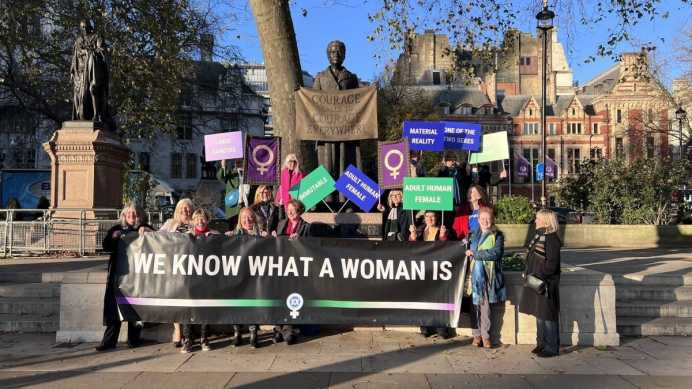Search for information
UK Supreme Court Rules on Definition of “Women” in Equality ActIn a landmark decision, the UK Supreme Court has ruled that under the Equality Act 2010, “women” refers to biological sex, excluding transgender women from gender - based protections. This decision is expected to have a significant impact on future policies, especially in women's sports events.
May 14, 2025, 3:40 pm EDT

Source: Images from the Internet, if there is any infringement, please contact the removal of

The Historical and Cultural Exploration of Southeast Asia: Layers and Development of Ancient Civiliz
The Historical and Cultural Exploration of Southeast Asia: Layers and Development of Ancient Civilizationsmore

Compound Archery to Debut at 2028 LA Olympics
Compound archery will make its Olympic debut at the 2028 Los Angeles Olympics. The event will be held at the Dignity Health Sports Park in Carson, along with other archery events. As the home stadium of the LA Galaxy soccer team, the 27,000 - seat venue will welcome top athletes from around the world to compete for gold medals. Tom Dielen, the secretary - general of the World Archery Federation, said in a press release last week that the 2028 LA Olympics is expected to be a milestone event for the archery sport. The Dignity Health Sports Park is an excellent choice,more

"Atelier Yumia: The Alchemist of Memories & the Envisioned Land" Achieves 300,000 - Plus Sales, Sets
Koei Tecmo and Gust have announced that the sales of "Atelier Yumia: The Alchemist of Memories & the Envisioned Land" have exceeded 300,000 copies. Released last week, this game has become the fastest - selling title in the "Atelier" series. In contrast, it took approximately one month for "Atelier Ryza 3" to reach the same sales milestone.more

Romantic Sea, Endless Beauty: The Early Summer Scenery of the Northern Coasts of Portugal and Spain
There are numerous countries with coastlines around the world. But why should Portugal and Spain be your top choices? All the photos in this article are real - life shots of the coastlines of Portugal and Spain.more

Tuvalu: A Nation on the Brink of Sinking into the Sea
Tuvalu, a small island nation in the South Pacific, is facing an existential threat as it teeters on the verge of disappearing beneath the waves. With a total land area of just about 26 square kilometers and a population of around 11,000, this tiny nation is extremely vulnerable to the impacts of climate change.more

From 0 to 2 billion! Will Jedi Zone Zero become the leader of the secondary gaming market?
From 0 to 2 billion! Will Jedi Zone Zero become the leader of the secondary gaming market?more

Natural Charisma Unleashed: Amateur Model in Foreign Beauty Photos Issue 117
The 117th installment of Foreign Beauty Photos has arrived, presenting a fresh collection of photos featuring an amateur model whose natural charm is bound to captivate audiences. This time, the lens focuses on an everyday individual who steps into the spotlight, bringing a unique brand of allure to the series.more

Zoë Kravitz Eyed for Directorial Role in Sony's "How to Save a Marriage" After Debut
Zoë Kravitz Eyed for Directorial Role in Sony's "How to Save a Marriage" After Debutmore

